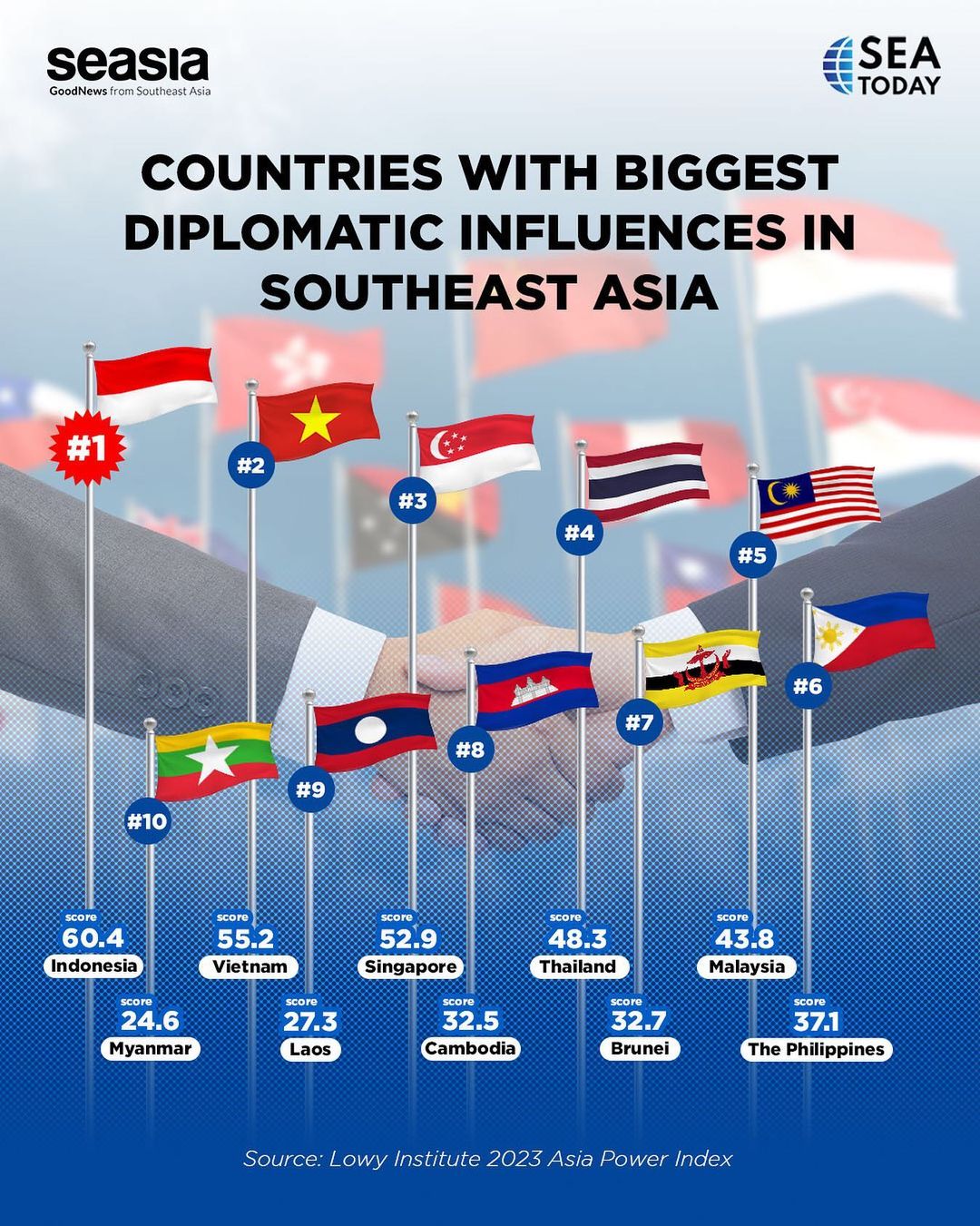The Lowy Institute published a ranking of Southeast Asian nations with the greatest diplomatic clout in 2023. This was done in reaction to numerous comments about Southeast Asian nations lacking the capability to compete and frequently engaging in war with other nations.
The dynamic and impact in the Asia Power Index 2023 report are ongoing. On a scale of 100 points, Indonesia is placed first with a score of 60.4. This political activity demonstrates that Indonesia is one of the most active nations in Southeast Asia.
Through its leadership position in the Association of Southeast Asian Nations (ASEAN), which was founded in 1967, Indonesia has a lengthy history of being actively involved in regional diplomacy. The ten nations that make up ASEAN are part of a regional alliance that encourages collaboration in the fields of politics, economy, and security.

Additionally, Indonesia has made a substantial contribution to regional peacemaking and conflict mediation. For instance, Aceh, an Indonesian province that had been beset by conflict for decades, was able to achieve calm thanks in large part to Indonesia's assistance. As part of attempts to end the ongoing conflict in Myanmar's Rakhine State, Indonesia has also taken the lead.
The concept of "independent and active" diplomacy, which emphasizes the nation's commitment to pursuing an independent foreign policy and taking an active part in international events, also serves as a guide for Indonesia's foreign policy.
Although Indonesia may not be the most powerful nation in Southeast Asia in terms of its military or economy, there are a number of other variables that support its diplomatic influence in the region.
First and foremost, Indonesia has gained the regard and confidence of its neighbors by serving as a neutral and impartial mediator in regional disputes. The management of Indonesia's diverse society and dealing with separatist movements have contributed to this image.
The second point is that Indonesia has a long history of fostering regional integration and collaboration. Indonesia played a key role in establishing the ASEAN's goals and policies as one of the organization's founding members. Through programs like the ASEAN Free Trade Area, Indonesia has also actively promoted regional economic unity.
Thirdly, Indonesia is home to a sizable and powerful Muslim population, giving it a unique viewpoint on regional and international issues pertaining to Islam and the Muslim world. As a result, Indonesia has been able to take the lead in fostering interfaith understanding and collaboration in the area.
Last but not least, Indonesia bases its foreign policy on the idea of "free and active" diplomacy, which highlights the nation's independence and autonomy in international matters. With this strategy, Indonesia has been able to achieve its goals while also making positive contributions to regional and global affairs.
Overall, despite not being the strongest country in the region in terms of military or economic power, Indonesia's reputation as a neutral mediator, its history of fostering regional cooperation, its distinctive viewpoint on global issues, and its independent foreign policy have all contributed to its diplomatic influence in Southeast Asia.


















